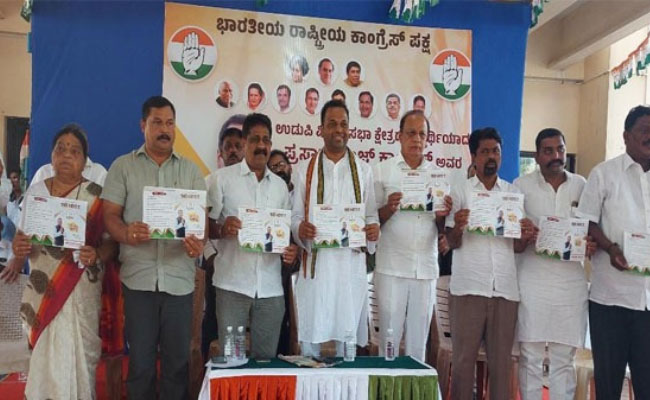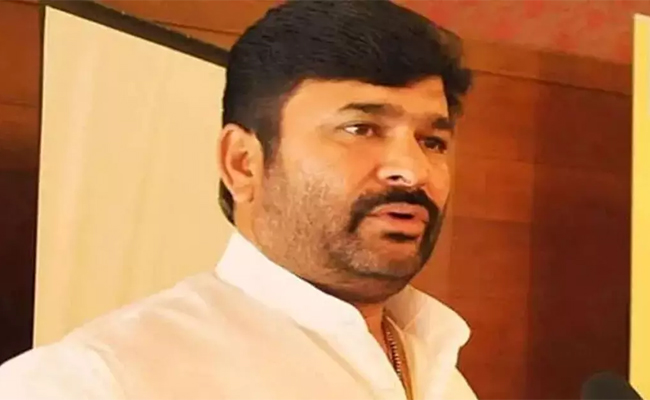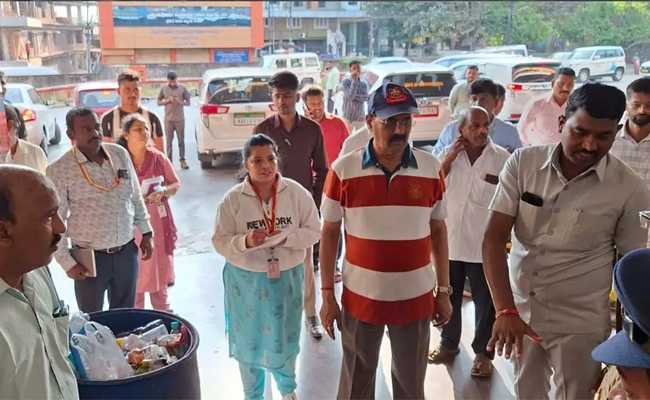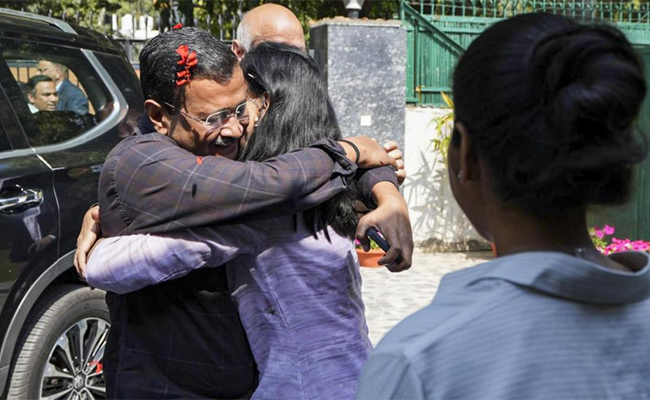Udupi: Vinay Kumar Sorake, former minister and Congress candidate from Kapu for the forthcoming Assembly elections, has alleged that Annamalai, who is joint in-charge of Karnataka for the BJP, carried a bundle of notes with him while arriving in Kapu by helicopter for campaigning on Monday.
The Udupi deputy commissioner has been informed of the matter, Sorake added.
Speaking during the release of the party manifesto at the Congress Bhavan in Udupi on Monday, he said, “The BJP won the 2018 election by spreading false information, but a lie does not work always. The voters of Udupi are well-informed about all matters. If secularism should survive in India, the Congress should be brought to power.”
The Congress candidate from Udupi Prasad Raj Kanchan filed his nomination papers on the occasion.
Kanchan said, “The upcoming elections are a major challenge for the Congress, which has contributed a lot for the progress of Udupi.”
Congress Udupi District President Ashok Kumar Kodavar, Udupi Block President Ramesh Kanchan, KPCC General Secretary MA Gafoor, Dinakar Herur, Annayya Sherigar, Geetha Wagle, Veronica Cornelio, Prakhyat Shetty and Nithyananda Shetty were among those present on the occasion.
Also read: BJP respected Jagadish Shettar; Congress will ‘use-and-throw’ him: CM Bommai
Let the Truth be known. If you read VB and like VB, please be a VB Supporter and Help us deliver the Truth to one and all.
New Delhi: The Supreme Court has granted bail to Congress MLA Vinay Kulkarni in connection with the murder of BJP Zilla Panchayat member Yogish Gowda from Hebballi in Dharwad district.
A bench headed by Justice Sanjay Karol passed the order granting bail to Kulkarni.
Earlier, following the cancellation of his bail, Kulkarni had surrendered before the Special Court for MPs and MLAs. His recent bail plea had also been rejected by the High Court.
Subsequently, Kulkarni approached the Supreme Court, which has now granted him bail.





